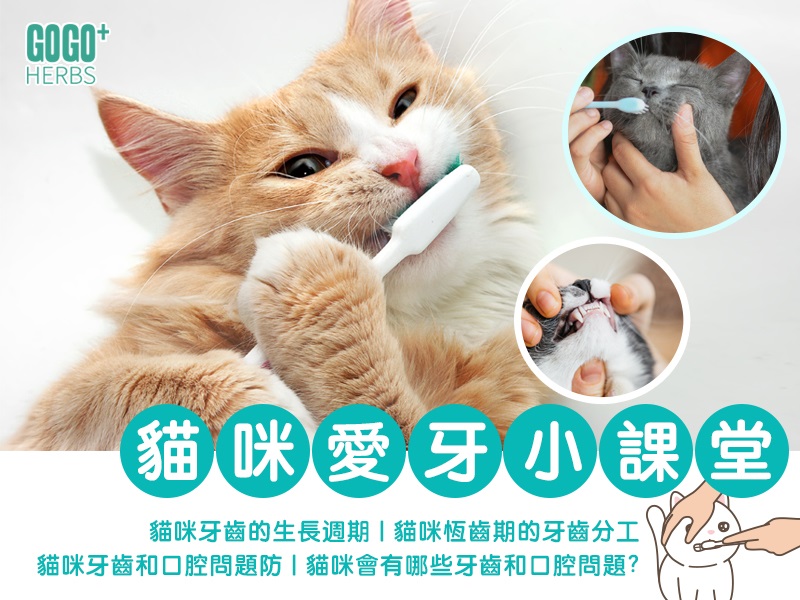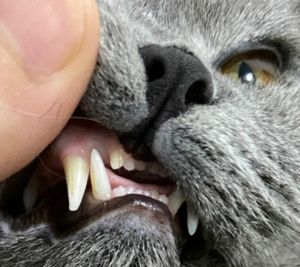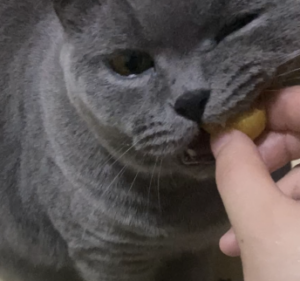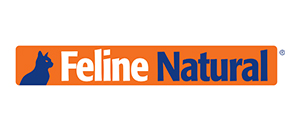
Cat's Love of Teeth Lesson
Have you ever found your cat's baby teeth? It's said to bring good luck. Cat baby teeth are very tiny and are usually swallowed during the teething process, making them difficult to spot. Cats have different tooth growth cycles, and healthy teeth allow cats to enjoy their food to the fullest and contribute to their overall health. Gogo Herbs' Cat Dental Care Class is now open!
The growth cycle of a cat's teeth
Kittens go through three dental stages from birth to adulthood: the dentition stage, the deciduous teeth stage, and the permanent teeth stage. Newborn kittens have no teeth; their gums are bare and soft, and they can only be fed breast milk or formula. Around two weeks old, kittens enter the deciduous teeth stage, where their teeth gradually emerge and grow. Itchy gums stimulate kittens to chew on toys and bite. At this time, their chewing and digestive systems are not fully developed, so they should be fed kitten food, such as canned meat puree and softened kitten kibble. Around three to four months old, kittens enter the permanent teeth stage, where their deciduous teeth fall out one by one, and permanent teeth grow in. Red and swollen gums, decreased appetite, and bad breath are normal and will resolve on their own after a while. A kitten's permanent teeth will stay with them for life and must be carefully protected.
Division of functions of cat teeth during permanent teething
During the permanent dentition stage, cats have a total of 30 teeth: 12 incisors, 4 canines, 10 premolars, and 4 molars.


Incisors are not used for chewing; they are mainly used for grooming, scratching, cleaning nail plates, and picking up objects, such as picking up toys and carrying kittens.
Canines are sharp teeth located on the sides of a cat's mouth. Large felines use their canines to pierce prey when hunting, while cats primarily use their canines for attack, capable of piercing human skin when biting.
Premolars and molars are the main chewing teeth of cats, responsible for cutting food into small, easy-to-swallow pieces, and are key teeth for cats to enjoy their food.
What dental and oral health problems can cats have?
Dental plaque
Dental plaque is the main culprit behind most dental problems in cats. Cats have narrow mouths and many grooves in their teeth, making it easy for food to get stuck in their mouths and on their teeth. Bacteria in the mouth absorb nutrients from this food debris, adhering to the surfaces of the mouth and teeth to form a sticky biofilm—dental plaque. As bacteria multiply, plaque spreads below the gum line, continuously secreting waste that damages the teeth and surrounding tissues.
Dental plaque and tartar
If dental plaque is not removed in time, it will calcify in the gaps between teeth and at the junction of teeth and gums under the combined action of oral cells and minerals, forming tartar and dental deposits. Tartar is a hard, yellow or brown deposit that cannot be removed directly. The gums where tartar has formed will also be red, swollen, and painful, affecting the cat's ability to drink and eat. Severe gum inflammation can cause the cat to drool excessively.
Periodontal disease
Gingivitis can develop into periodontitis. Gingivitis causes gum recession and exacerbates tartar buildup, continuously damaging the tissues around the teeth, leading to exposed tooth roots and eventually tooth loss. Once it progresses to periodontitis, it can cause not only periodontal tissue and oral ulcers, but also oral and nasal fistulas, facial ulcers, and malnutrition.
Prevention and treatment of dental and oral problems in cats
1. Develop the habit of brushing teeth from a young age
It is recommended to brush your cat's teeth three times a week. Kittens adapt most easily when they are around three months old, as their permanent teeth have already erupted and their resistance is relatively weak. This is especially important for cats that frequently eat wet food, meat, or whose staple foods are high in starch, and those who enjoy eating fruit. Owners can add dental cleaning solution to their cat's drinking water or feed them dental cleaning biscuits for daily oral hygiene.
2. Reward your cat for brushing its teeth correctly.
Cats have narrow mouths, so choose a small-headed toothbrush specifically designed for cats to minimize irritation. Using a finger toothbrush to clean a cat's teeth may result in bites. Cats don't spit out foam, so choose edible cat toothpaste. Before brushing, let your cat lick the toothpaste to familiarize themselves with the smell, then try applying it to their canines, gently massaging their teeth and gums. Brush only in simple circular motions; avoid excessive brushing to prevent aversion and resistance. Start cleaning the incisors and gradually work your way up to the molars, focusing on cleaning the molars and the spaces between them. Brushing doesn't need to be continuous; take breaks and continue. Remember to reward your cat with treats or toys after each brushing session. Regular brushing not only prevents plaque but also dissolves some superficial tartar.
3. Teeth cleaning to remove tartar.
When tartar severely affects gum and periodontal health, impacting a cat's daily life, veterinary cleaning should be considered to remove it and prevent worsening of oral inflammation. The cleaning process can be uncomfortable and cause bleeding, so cats may not cooperate. Therefore, general anesthesia is required. Anesthesia inevitably causes some harm to the cat's body, and a comprehensive assessment of the cat's health is essential before anesthesia. Follow-up dental checkups every six months are necessary after cleaning.
4. Periodontal disease treatment
In the early stages of periodontitis, veterinarians will focus on cleaning the cat's teeth and the area between the teeth and gums, and will prescribe mouthwash for the cat to use daily to prevent plaque buildup. When periodontitis becomes severe, with teeth moving more than 3mm, X-rays showing root resorption, and severe gum recession leading to root exposure of up to 75%, tooth extraction is necessary to prevent the inflammation from spreading to surrounding oral tissues. Tooth extraction will not affect the cat's ability to eat dry food and canned food, but it will affect their ability to bite large pieces of food.
That concludes our Gogo Herbs Cat Dental Care Lesson. Cultivating good hygiene habits and regularly cleaning your cat's teeth helps prevent periodontitis and tooth loss. After treating periodontitis, you can also choose a staple food for your cat made with high-quality ingredients to protect their dental health. We recommend Hill's™ Pet Food Adult Cat Oral Care Formula, which strengthens teeth nutrition and is clinically proven to reduce plaque and tartar buildup. Its interwoven fiber technology cleans teeth with every meal, and it's also fortified with Omega-6 and Vitamin E to maintain a shiny coat. It can be used after wet food to clean food debris from the mouth. Hill's™ Pet Food also offers chicken and liver cat food for kittens, helping them build a healthy foundation from a young age. For more scientific pet care products, please visit the Gogo Herbs Pet Health section. For product details, please contact us via WhatsApp at +852 5483 0695.
Related Products:
-
Sale!
 Out of stock
Out of stock
NurseMate – Milk Taste Colostrum Nutritional Cream 15ml
Original price was: $198.00.$158.00Current price is: $158.00. Read more -
NurseMate – Milk Taste Colostrum Nutritional Cream 30ml
Original price was: $299.00.$279.00Current price is: $279.00. Add to basket -
Monster Tribe – OK! Probiotics for Dogs and Cats 1.5g 30 packs
Original price was: $190.00.$160.00Current price is: $160.00. Add to basket -
Monster Tribe – Dietary Fibre + Probiotics + Digestive Enzymes Probiotic Hair Removal Powder 50g
Original price was: $128.00.$90.00Current price: $90.00. Add to basket


































































